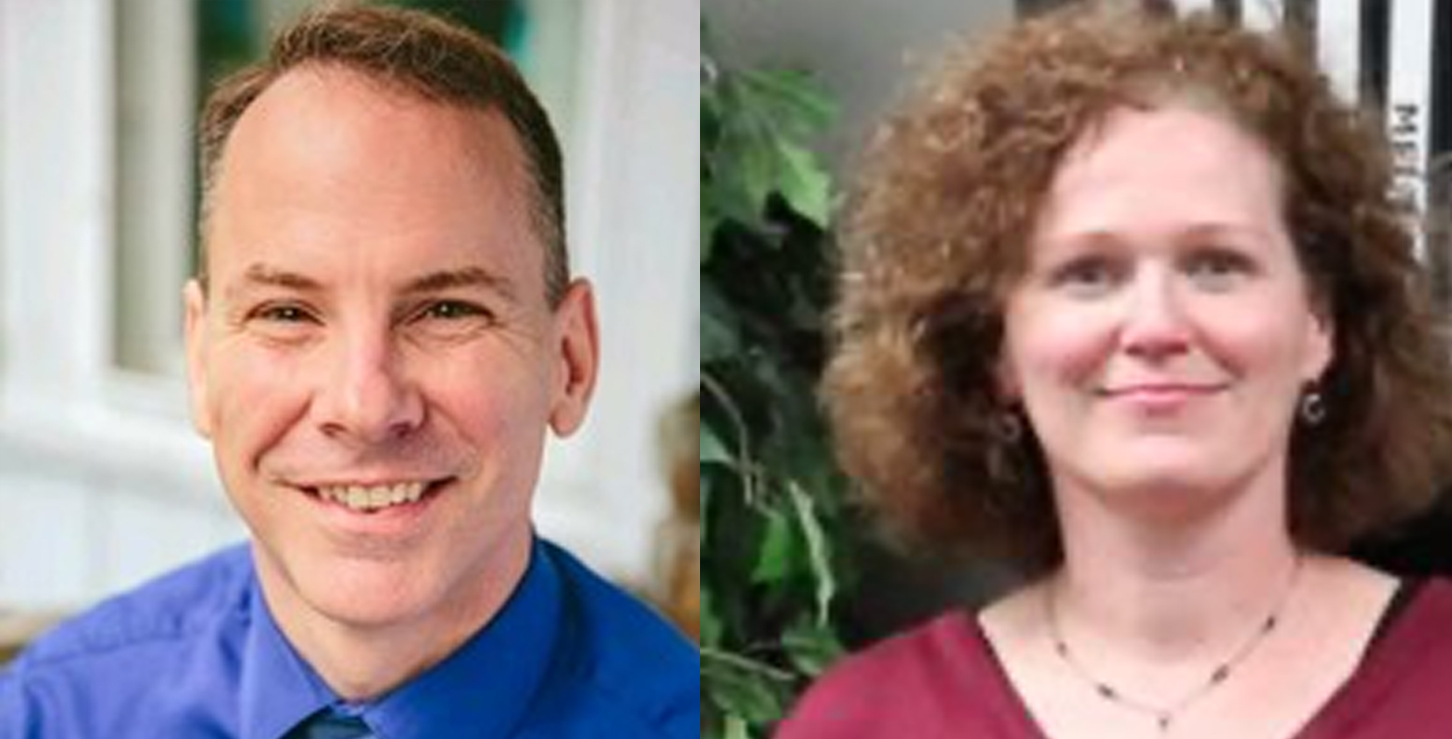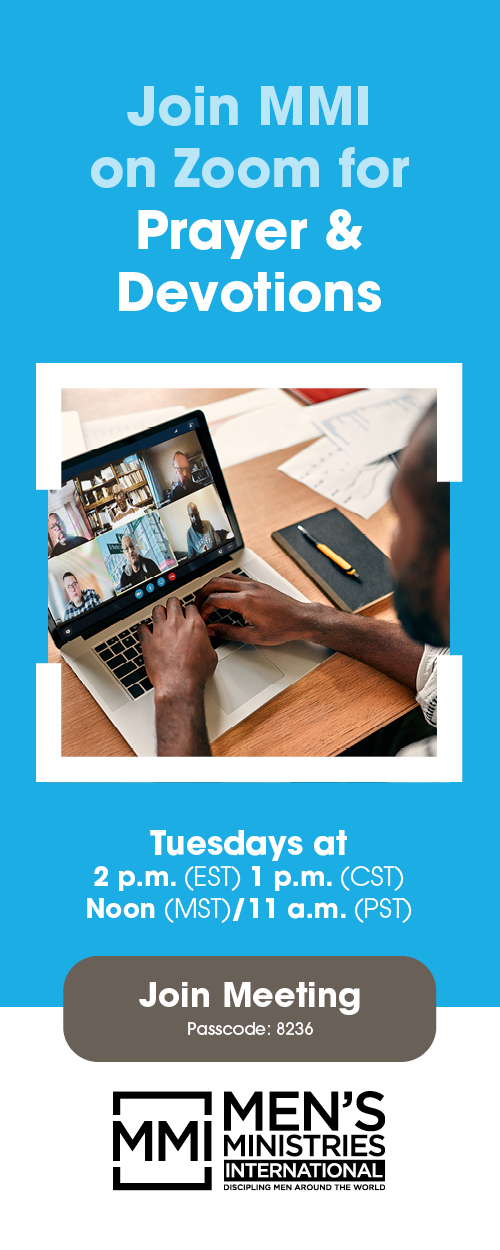
Rev. Dr. Steve Tungate and Rev. Jennifer J. Wilson
Center for Pastoral Formation
The Rev. Dr. Steve Tungate is the director of the Center for Pastoral Formation. He has 23 years of Free Methodist ministry experience serving churches in Michigan and Illinois. He has a Doctor of Ministry degree from Fuller Theological Seminary and is currently a Ph.D. candidate in theology (church history) through the University of South Africa. He also earned a Master of Divinity degree from Asbury Theological Seminary and a Bachelor of Science degree in biology from Michigan State University.
The Rev. Jennifer J. Wilson is the administrator of the Center for Pastoral Formation. She has served congregations in Michigan and Indiana and has worked for Greenville University’s advancement office and Anderson University’s spiritual life and counseling office. She has Bachelor of Arts and Master of Divinity degrees from Anderson University.
by Rev. Dr. Steve Tungate and Rev. Jennifer J. Wilson
“I want to know one thing, the way to heaven — how to land safe on that happy shore. God Himself has condescended to teach the way: for this very end He came from heaven. He hath written it down in a book. O give me that book! At any price give me the Book of God!” With these words, John Wesley introduced his “Sermons on Several Occasions.” He then proceeded to declare his desire to be “homo unius libri” — a man of one book.
“One book!” These are interesting words from someone who spent his hours on horseback reading volumes of theological writings. “One book” is a far-off measurement of the thousand books that filled his own personal library, not to mention the magnitude that he wrote and those he gave away. Yet his point is clear; the Bible — this collection of God-given revelation — is unique, and its importance far exceeds all other writings beyond comparison.
Throughout history, the Bible has transcended race, ethnicity, culture, and time to proclaim the message of an infinite God with infinite love for a fallen humanity. Its pages speak timeless truth with authority as they point people to Jesus, the one and only means to relationship with God. This one book, when studied in context and with diligence, grounds us in the truth while preventing dangerous tangents. In an age of political extremism and polarization, all-or-nothing dichotomies, and social media sound bites, there remains a critical need to be a people of one book. Having biblically literate congregations helps guard against political divides and harmful digressions, keeping people grounded in the truth.
Biblically Literate Leaders
B.T. Roberts understood that maintaining biblically literate congregations requires Scripture-savvy pastors. In the 1887 Discipline of the Free Methodist Church, Roberts posed the question “why is it that people under our care are not better?” He responded with the answer, “the chief [reason] is, because we are not more knowing and more holy.” In this context, he established a daily schedule for pastors. Roberts urged ministry leaders to wake at five in the morning and spend the time until noon in Bible study, note-taking, praying, and meditating with an hour-long breakfast from six to seven. He encouraged this continuance from five to six in the evening before dinner. In the case that the morning schedule did not allow, he exhorted the clergy to spend at least five hours a day in prayer and study.
Roberts understood that a pastor cannot lead where she or he has not gone. Intense study of the Scriptures deepens preaching, informs mission, transforms the pastor, and in turn shapes the community. The ancient church saying borrowed from the Old Testament summarizes it well, “as goes the priest, so go the people.”
Practical Ideas for Developing Biblically Literate Congregations
Public Reading of Scripture
The public reading of Scripture is a deeply rooted tradition throughout Christian and Jewish history. From Ezra’s reading of the Law from morning to evening as the people wept and worshipped (Nehemiah 8) to Jesus’ reading of Isaiah in the Galilean synagogue (Luke 4) to Peter reciting from the book of Joel at Pentecost (Acts 2), the public reading of Scripture has often accompanied major spiritual events.
Public Scripture recitation requires intentionality. The Lectionary may serve as a helpful guide. Using the Lectionary, a congregation is led through the breadth of the biblical text over a two-or-three-year span. This may be done by one person and a Bible, read dramatically by a group in parts, or by making use of online videos that provide accompanying backgrounds and music. A plan that covers the whole Bible helps move beyond only preaching one’s favorite texts.
The public reading of Scripture is a powerful practice and invites the listener to hear, consider, and respond within community. It can and should be more than reading brief texts on a Sunday morning. When the early church received letters from the Apostle Paul and other disciples, they read them out loud together. In fact, it is very likely they read the whole letter, aloud, in one sitting. There was an interest and urgency in hearing from the author from start to finish. The letter contained responses to questions they had or issues previously communicated. Encouragement, concern, and love were shared. Read-alouds are regular gatherings where people gather for the public reading of a whole passage or letter of the Bible (30–45 minutes). Participants determine a common translation and designate one reader or take turns. With many recorded options available, participants can select a translation and listen together as they follow along with Bibles. Although different from Bible studies, there will still be reactions and impressions to share at the end of hearing the selected passages. Read-alouds are a great way not only to introduce people to the Bible, but to encourage ongoing familiarity with its stories, lessons, and themes. Read-alouds could be offered during a Sunday school hour, as a lunch break option, or as a midweek evening check-in.
Corporate Reading Plans
Establishing a congregational reading plan serves as a great way to stimulate discussion, mutual accountability, and unity shared around a common goal. Examples may include reading the entire Bible in 90 days or throughout a full year, or just reading one particular book of the Bible over the course of a week or month. Partnering this with a preaching series reinforces the congregational experience.
Teaching Inductive Bible Study
It is important to move beyond merely reading the Bible to studying the text. Biblically literate congregations will have the tools to study the Scriptures for themselves. Inductive Bible study techniques will empower people to make their own observations, educated interpretations, and life-changing application.
Curate a Collection
The Bible itself is a curated collection of many books. Written by more than 40 authors over 400 years, the different genres communicate a greater story and the attributes of our living God. In his book “Celebration of Discipline,” Richard Foster shares about the practice of biblical study, “To read successfully we need the extrinsic aids of experience, other books, and live discussion.” When we read the Bible and books about the Bible, Foster writes, “we interact with the author, we interact with each other, and new creative ideas are born.” Many congregations have access to hard copy books such as Bible dictionaries, handbooks, commentaries, and other interpretive literature. If you have a library, keep it current. Seek donations either of trusted books or money in order to purchase books. Online resources and apps abound, offer direction and caution for people when reading information from online sources. Curate means to care for, organize, and present. Work to determine and promote resources that are sound and appropriate for Wesleyan theology. Creatively present tours, how-tos, or feature a “resource of the week/month” to let people know how to best engage. Invite people to share reviews of resources or participate in forums of what resources they use to better understand the Bible.
Reading Like Things Together
In the world of professional organizing, putting like things together is one of the first and most basic steps. Things begin to make better sense when we see how they connect (or how many of them we have). The Bible is a collection of different genres (law, history, poetry, wisdom, prophecy, gospels, epistles). Yet many of the writings connect across genres. Consider putting like things together by reading Leviticus (Old Testament) and Hebrews (New Testament) in succession. Or match David’s Psalms with their historical narrative in the Samuels, Chronicles, and Kings. Same with the prophets, major and minor. The prophets spoke in real time to the kings of Israel and Judah. Develop a biblical timeline chart showing the relationships between the books. There are some great charts available online. Help readers put like things together to better understand each Bible book and how it fits into the entire sacred work. This may be done in preaching series, Sunday school, or small group settings.
Allow for Questions
Provide various ways for congregations to ask questions. Collect questions on note cards, email, or social media that serve to steer the preaching series for a few weeks. I (Steve) have seen questions range from profound wrestling with the problem of evil and suffering to humorous ponderings if the beavers did damage on Noah’s ark. Beyond providing answers for real questions, this may serve as a measure to assess where a congregation is at in their understanding of and engagement in the Bible. When separated by a few years, these questions may gauge a congregation’s spiritual growth. One can look back to see if their questions are deeper or simpler than previous years. With an influx of new people, the questions help evaluate if or when we needed to revisit the basics.
Like Wesley, we seek to be people of one book. Like Roberts, we strive to devote ourselves to the study of Scripture. When entire congregations find this devotion and singularity of focus, the impact is greatly felt.
+

Rev. Dr. Steve Tungate and Rev. Jennifer J. Wilson
Center of Pastoral Formation
The Rev. Jennifer J. Wilson is the administrator of the Center for Pastoral Formation. She has served congregations in Michigan and Indiana and has worked for Greenville University’s advancement office and Anderson University’s spiritual life and counseling office. She has Bachelor of Arts and Master of Divinity degrees from Anderson University.










Very important information! Reading “THE BOOK” , God’s Word for us, is highly important, especially today!
Hope we’ll stimulate more of this throughout the nation and the world!
Very helpful strategies!! Thank you!
Great fan of studying the Good Book, but Inductive study reflects 17th c. philosophy and mid 19th c. American culture. I would hope we’re better than that.